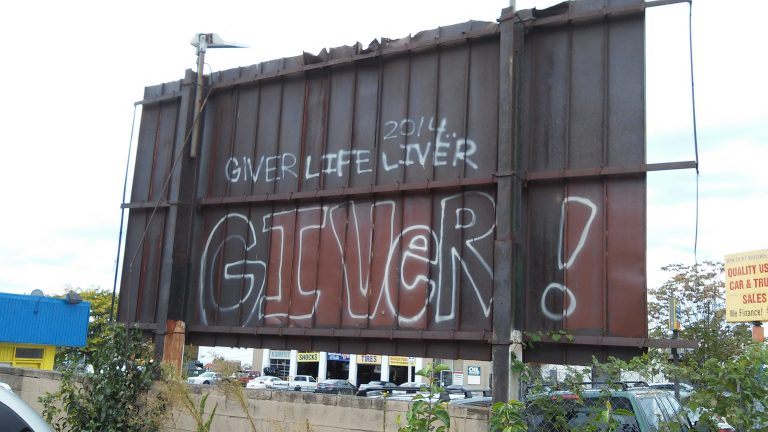By Urizen, MDiv LMSW
I recently quit my job as a middle manager at a homeless shelter. To co-workers and friends, it was an unexpected and shocking move. But in the weeks leading up to my decision, I realized it was not the job I was giving up, but working within the system.
I have spent the better part of the last decade working in, with, and/or for social service agencies. Whether a homeless shelter or day treatment program, whether working with schizophrenic men or autistic children, like most social workers, I can rightfully say that I have seen it all. And while I have had my share of tragic cases and difficult clients, nothing compares to the challenge of navigating agency politics and a corporate culture no longer reserved for corporate America.
Over the course of the last few years, and as I moved up to middle management, I have lost nearly all joy and pride in my work. Once an active and health conscious person, I have put on nearly 30 lbs, a considerable amount in light of my 5’6” frame. I have spent every free moment in hiding, hoping to avoid letting anyone see how miserable I have become. Family and friends have tried to be supportive, but I have been unable to ask for or accept help, even though I am in the business of helping others.
No matter how skilled, social workers do internalize some of their clients’ traumatic experiences. This is known as “Secondary Trauma.” It is not easy, but it comes with the territory. It is something you learn about in schools of social work, something you are actually, at least in part, prepared for.
What school did not prepare me for was being at the mercy of anxious administrators or supervisors, and intra-agency politics that are more about who is in control rather than who we are helping. I do not blame any of my specific supervisors or agencies for whom I have worked, but at all levels within those varied agencies, people are oppressed by the same constraints, expectations, and culture of crisis. It goes well beyond the CEO of such and such agency. It’s the American zeitgeist: now and new, fight or flight, me versus you.
The expectation of a manager at a social service agency is that you will work 50-60 hours per week, and, even when you go home, that you will be answering your emails on evenings, weekends, and days off. Your value as an employee is based upon your productivity rather than your ideas, your ability to connect to clients, or even your personhood. It is not what you do, it is what you produce and how that corresponds to the expectations of those higher up on the corporate ladder. Not for profits are no longer immune (if they ever were) from a capitalist ethos, itself the mentality behind many of the policies that have led us to the need for social service agencies in the first place!
I have friends that have gone the corporate route and who are therefore subject to similar expectations. On average, they make two to three times the salary for a parallel social services position, and the motive behind their chosen, corporate path is often financial security. I say this, not as a judgment, but to juxtapose the expectations of someone going to work for a corporation versus someone going to work for a non-profit. Bragging rights excluded, there is no longer a difference between for-profit and NOT-for-profit in terms of internal/management culture, expectations, or even grotesque salary gaps between frontline staff and CEOs. I have known many people employed by social service agencies (myself included) that are only marginally better off financially than the clients they serve, who live paycheck to paycheck, and who feel no job or financial security.
People who work in “helping professions” are exploited because of their desire to help. The spiritual boon, the get out of hell free card given to do-gooders, is meant to make up for the lack of salary. I would certainly be more accepting of the lower salary had I been given the sort of work-life I imagined would materialize working for a social services agency, one where the prevailing consideration would be whether or not we were helping our clients.
The CEO of an agency once asked me why I went into social work.
“To leave a low karmic footprint,” I replied.
I have not met this goal. Your actions in the social services world are dictated by policies that are often not in the best interest of the individuals we serve. I can cause more harm than good just because I have to follow orders. Rather than preparing an individual to live independently, the emphasis is on getting them into housing first (in a New York system that lacks the commitment to preserve that housing when an individual demonstrates an inability to live independently, inevitably delivering them back to the shelter system). If an individual has a substance abuse challenge, the emphasis is on getting them into a 28 day rehab program rather than helping them manage their addiction. The individual’s right to self-determination is superseded by a legislated morality that is not evidence based. No matter how much social service agencies talk the talk of “person centered planning,” the individual is the last person considered when making a decision supposedly in their best interest.
Even ostensibly liberal social service organizations are married to outmoded notions of the individual as the sole arbiter of their station in life (as opposed to considering structural or societal norms that impact said station). With enough hard work, with inspirational quotes and a vision board anyone can be a success (economically) in the American panoply. What is discounted in this equation is the effect of institutionalized oppression, so often predicated upon race and/or ethnicity. Whether it be abstinence only substance abuse treatment, or internship programs that prepare individuals living on public assistance to make $7.25 an hour, the standard solutions offered by social service agencies are unsustainable. Until these agencies ideologically distance their orientation from the prevailing notions of the individual in a capitalist society, at best nothing will change, and at worst individuals will continue to wallow in self-blame for their current underprivileged state of being.
So what now for a social worker fallen on hard times? Well, I am joining the “gig economy,” going freelance like a hipster graphic artist, or fashion designer. I am doing what is known in the industry as “fee for service” work: I meet with clients for psychotherapy and/or case management services and get paid a fee for the service provided. I will still be a social worker, and still technically working for social services agencies, but I will be an independent contractor. I will not walk into work on a Monday morning to 200 plus emails mostly dealing with administrative concerns, I will not ask, “how high?” if asked to jump at all.
I’ll be a CEO in my own chains, beholden only to my concern for the client, and freed from thinking about the agency’s bottom line. It will be a financially strenuous transition. There will be no more paid vacation or sick time. I will have to purchase my own health insurance and establish my own IRA. My expectation going into social work was not to become wealthy but to be happy. I expect challenges ahead, but I know that, if I am going to make a difference in my own life or that of others, it is going to be from outside, not inside, broken systems built on problematic ideological principles. I have to save myself before I can save others. I have to provide social-justice-informed direct care in order to enact change from the ground up.

Born and bred in a pre-gentrified Brooklyn, Urizen is a proud product of the NYC public schools. He wrote his first play in the 4th grade – a one act allegory for Global Warming set on Mars. It was never produced. Urizen holds a Master of Divinity from Union Theological Seminary in New York, a Masters of Social Work from Hunter College, and currently works as a psychotherapist in a community mental health clinic. He is also a writer who lives in Brooklyn (stand up!) with his calico cat Sadie and numerous historically themed aquariums.
This op-ed was originally published by OnBckgrnd.com, on Sept. 5, 2016.

